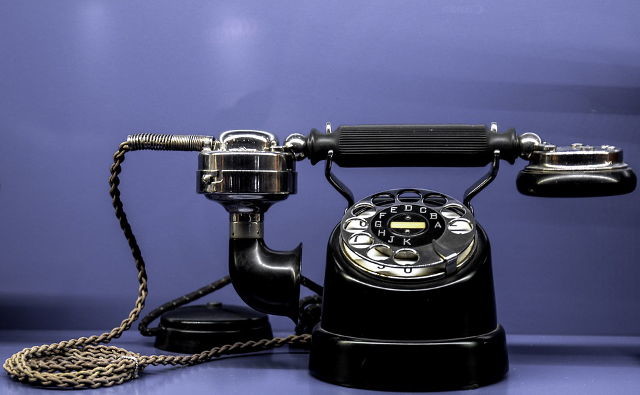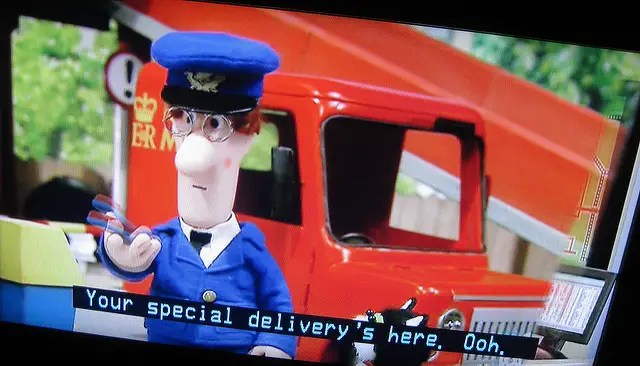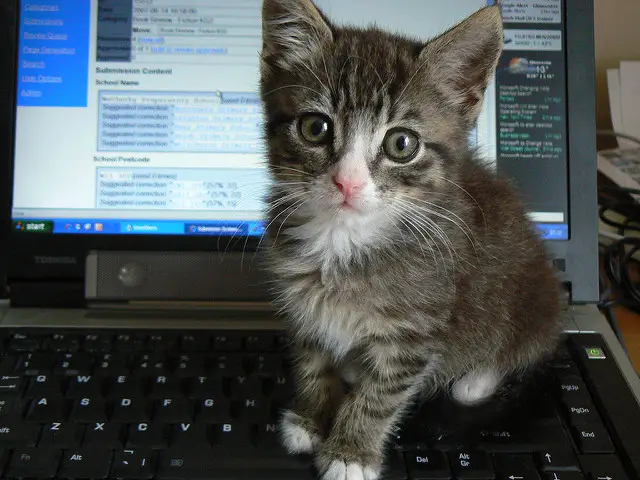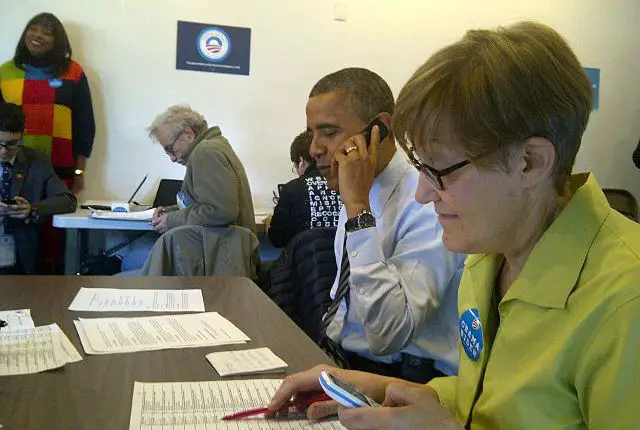Jonathan Dodd’s latest column. Guest opinion articles do not necessarily reflect the views of the publication. Ed
We don’t get phoned up much any more, it seems. Or rather, we do, but it’s always the usual suspects. Doesn’t anyone use a normal telephone any more? Is the art of conversation dead? Or are we just a bunch of Nobby-No-Mates without any friends?
I think other things have taken over. I like email myself for communication. You can take your time and answer all of your correspondent’s queries as well as write lots of news and some stories about what’s been happening, and you can read their email to pick up general impressions about their states of health and mind,
Perhaps they think I’m needy
But I don’t think everyone has the same enjoyment of the typed word that I do. Let’s face it, who else would drone on every week like this. Quite often I’ll receive a two-line email, and I’ll reply fully and succinctly, and then I get a two-line answer back again. Perhaps they think I’m needy.

I remember the days when there used to be a big black Bakelite telephone with a dial in the Hall, on a spindly purpose-made table with thin legs, right in the draught from the front door, and every member of your family standing in line with thumbs on the stop watch button. It was hardly a suitable environment for revealing chats with your friends.
The excitement and distress
Then there was good old snail mail. if you wanted to speak with relatives or friends or potential life-partners that was the only way to put your thoughts into words. You’d lick the envelope down, and lick the stamp, and post it. An interminable time later a letter would arrive in response. Although the whole thing was ponderous and entirely at the mercy or the Post Office and your correspondent’s desire or proclivity to reply, nobody who lived at that time can forget the excitement and distress waiting for the postman to deliver the post.

Nowadays everyone seems to have abandoned all these methods for the easiness and instantaneity of social media. We give out all our news there, often accompanied by photos, we discuss our thoughts and fears and health issues with anyone and everyone, also with photos. We hand out invitations and congratulations and commiserations, send Birthday and Christmas greetings, and announce everything from the acquisition of a pack of fish fingers to the outbreak of Armageddon. There’s no way any more to distinguish between the trivial and the super-important.
I still experience a flash of terror
Even bureaucrats have got in on the act. I now pay both my TV licence and my car tax on-line, and I pay monthly. I remember the terror I used to feel about being spotted in the car without a tax disc. Nowadays there isn’t even one of those any more. I still experience a flash of terror occasionally when my peripheral vision notices the lack of tax disc at the corner of my windscreen. And it’s not only the discs that have disappeared. Bureaucrats are enthusiastically getting into the idea of no longer performing the duties they were originally employed for.

I recently spent a bit of time at the Dole Office. No. it’s not that . The unemployment Office. No. It’s the Job Centre Plus, although I’m not sure what the Plus is for. I remember when the Dole Office was a place full of clouds of cigarette smoke and scowling down-and-outs and screwed-down seats where scowling bureaucrats would grunt at you behind reinforced wired windows. But at least they used to give you actual money. In cash.
Jolly security guys in dress-down
Nowadays they have actual carpet, and receptionists, and jolly security guys in dress-down. You pre-book an appointment and someone tells you that they’re not there to find you a job, and that they don’t actually administer your benefits. I made the mistake of asking what was left for all of them to do, and they became very disapproving.

It seems that their whole reason for being is to discourage you to go there at all. They had a range of activities they were keen to get you to attend, like ‘How to write a CV’, after I had just handed them a copy of mine, and ‘How to apply for jobs’, after I gave them a spreadsheet of all the jobs I had recently applied for. They suggested happily that I might want to attend, or my benefits (that they had just told me they wouldn’t be paying me) might be affected.
Existential anomalies
I got on very well with the cheerful lady who was my ‘caseworker’. She agreed that there wasn’t anything they would do for me, and suggested that I’d get a job far quicker by doing what I was already doing. She admitted that she too wondered what she was there for. I suspect she was glad to be sitting on her side of the desk, because it meant she had a job, although I rather think it she was occasionally a little disturbed by the existential anomalies of the situation.

I sometimes wonder what we humans are all about. It seems that we moan a lot when there isn’t much to go around, and then we find ourselves surrounded with miracles and we have no idea what to do with them. We have the entire sum of all human knowledge ever at our fingertips and we spend our time watching videos of kittens. I know. I do that too
Clothes with the right labels
We spend vast sums of money on ill-made, badly fitting clothes with the right labels. We shout at incredibly fit sportspersons on huge high-definition televisions which we watch from our obese settees. We know very little about anything and don’t even bother to vote. We listen to terrible music on fantastically high quality sound systems. More books are published and films released than ever before, but libraries are closing and the local cinemas show more or less exclusively lowest-common-denomination films.
 Most Europeans and Asians speak second-language English better than most of us even though it’s our only language. We want jobs, but turn down less well-paid jobs and dream about better-paid jobs we’ve spent no time getting qualified for, and then we complain about foreigners taking the jobs we won’t do. We yearn for the good old days when Britain was Great, forgetting the hardship and terrible conditions that lay behind that greatness.
Most Europeans and Asians speak second-language English better than most of us even though it’s our only language. We want jobs, but turn down less well-paid jobs and dream about better-paid jobs we’ve spent no time getting qualified for, and then we complain about foreigners taking the jobs we won’t do. We yearn for the good old days when Britain was Great, forgetting the hardship and terrible conditions that lay behind that greatness.
A few who get up and do stuff, and a lot who don’t
I’ve not suffered hardship. I grew up with enough food and a warm bed (after I’d been in it for a few minutes). I had an education, and a bike, and there were parks and cinemas and a beach close by. My parents loved me and cared for me, and I did all right. But my parents suffered hardship. They both left school much earlier than I did and had to work, they had few resources and very little money. And they had far fewer choices than I did. And they had to live through two World Wars and a Great Depression.

I don’t think people in general do change. In any group, large or small, in any nation anywhere, there will be a few who get up and do stuff, and a lot who don’t. When John Kennedy said – “Ask not what your country can do for you. Ask what you can do for your country”, he knew he was only speaking to a small number who might be inspired to get up and act.
Texto, ergo sum
I also think that my parents and their generation would probably have acted just the way we do now if they had had all our choices and resources, and the incredibly richness of the possibilities right in front of us. A few of them would have got up and grabbed those opportunities, and a lot would be at home, on their settees, shouting at sportspersons and watching videos of kittens.

I wonder whether Descartes would have said – “Texto, ergo sum”. Or probably he might have never learned Latin at all. Those of us who do get up and work and strive, for whatever we feel is important, usually feel that we’re not doing enough. Those of us who sit and complain or never even think about what we should or might do may feel bad or might never even think about it. As usual, I have no idea.
If you have been, thank you for reading this.
Image: TonyTheTiger under CC BY 2.0
Image: Gellinger under CC BY 2.0
Image: rubygoes under CC BY 2.0
Image: U.S. National Archives and Records Administration under CC BY 2.0
Image: Public Domain
Image: deerwooduk under CC BY 2.0
Image: Public Domain
Image: Public Domain
Image: public domain





